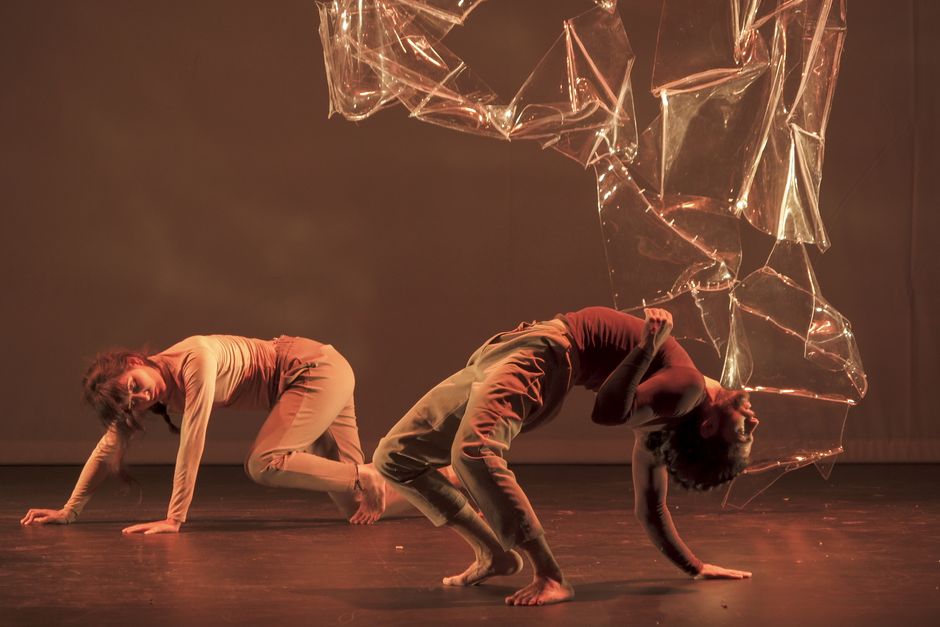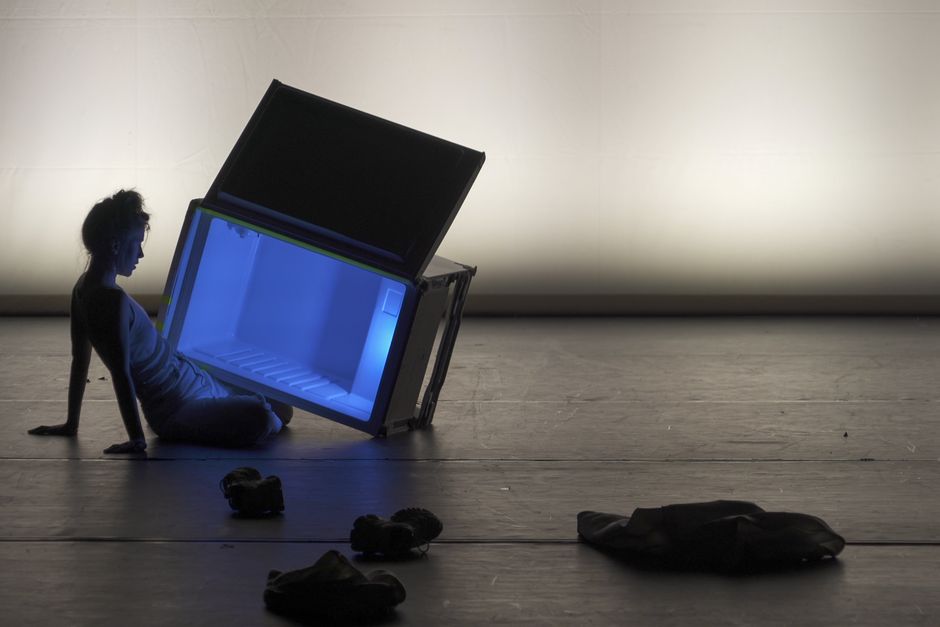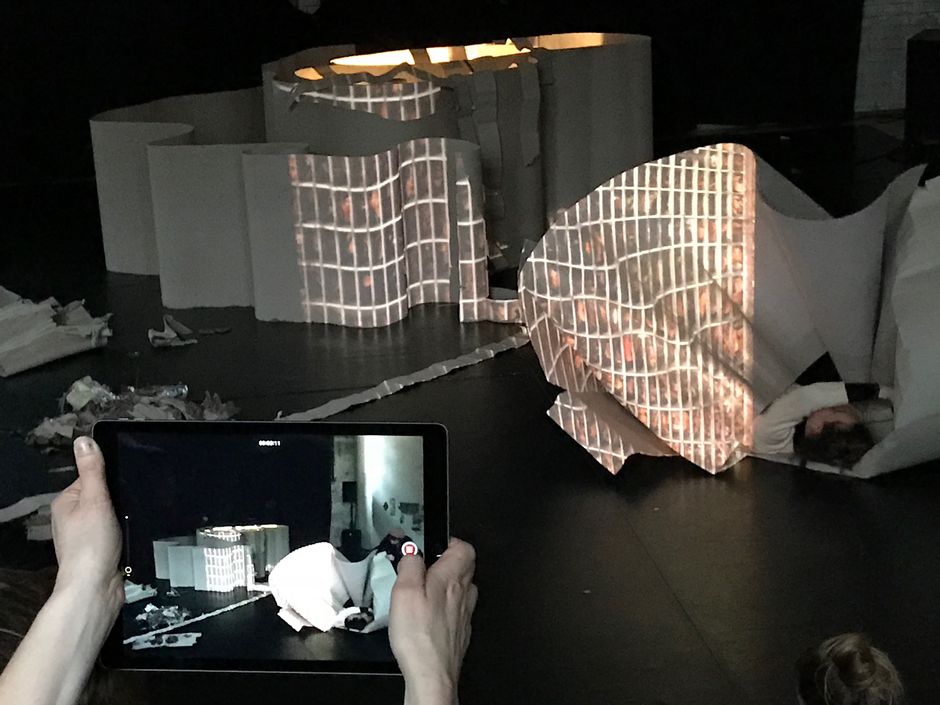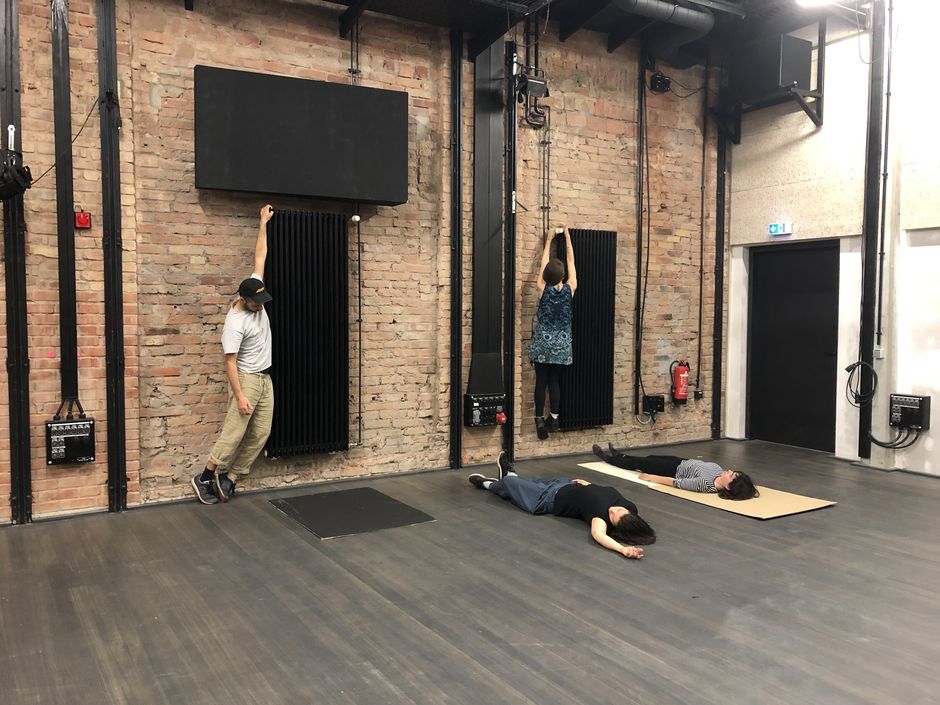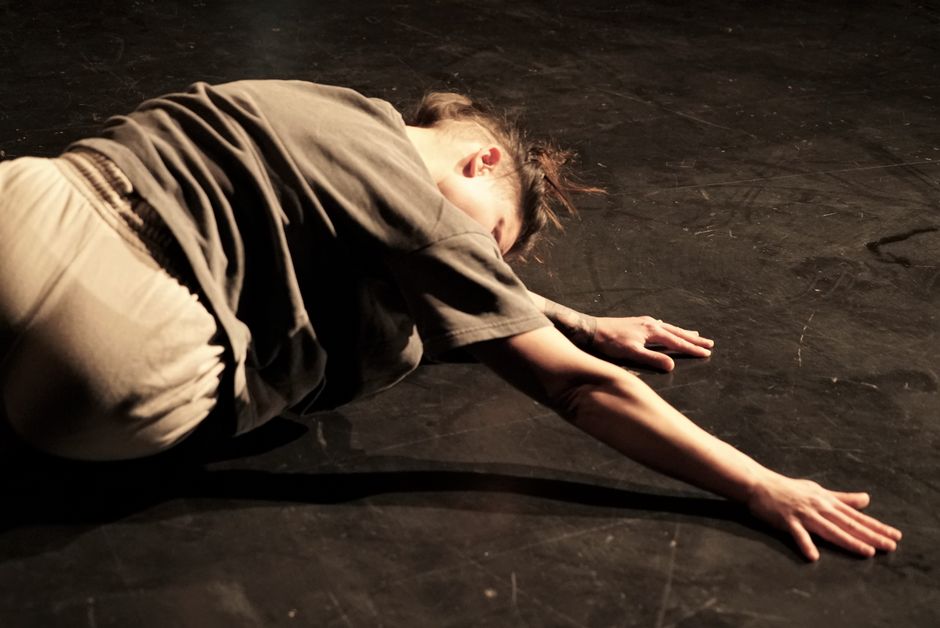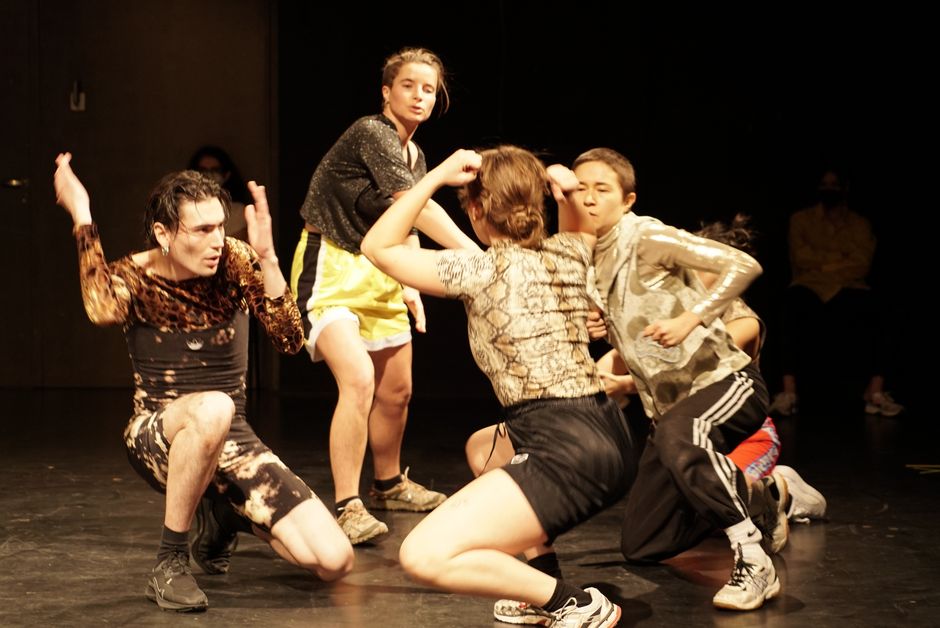MA Choreography (maC)
Master of Arts
All further information and the application documents can be found here.
The two-year Master's programme in Choreography (maC) offers students the space to develop and deepen their own artistic practice.
The degree programme understands questions of participation, cooperation and social responsibility as central to contemporary choreography and promotes an active dialogue on socio-political issues with the means of choreography.
In dealing with the visions, works and working methods of other artists, students question their own choreographic strategies and their own understanding of choreography. They reflect on their practice, further develop their artistic point of view and learn to convey their aesthetic approach.
Students regularly develop projects in cooperation with klangzeitort, the Institute for New Music Berlin, the Biennale Land(schafft)Kunst in Neuwerder, the Potsdam Tanztage and various other dance training programmes of Berlin.
[Translate to English:]
Modul 1: Körper- und Bewegungsrecherche
Dieses Modul ermöglicht durch die Integration von somatischen Praxen und Theorien der Verkörperung ein vertiefendes Wissen über den Körper (als Konzept und als Physis). Der Körper wird dadurch Instrument der Wissensproduktion, d.h. der Produktion von Wissen durch den Körper. Auf dieser Basis werden durch Studiopraxis Strategien der Bewegungsfindung geschaffen.
Modul 2: Modelle künstlerischer Zusammenarbeit
Gegenstand des Moduls ist die Zusammenarbeit im choreographischen Arbeitsprozess. Der Fokus liegt besonders auf der Zusammenarbeit zwischen Tänzerinnen und Tänzern und Choreographinnen und Choreographen. Die Studierenden lernen unterschiedliche Formen der Zusammenarbeit kennen, erproben und reflektieren sie. Zudem lernen sie das entsprechende Fachvokabular und Grundkenntnisse, um über Video, Audio und Licht zu kommunizieren. + interdisziplinäre Zusammenarbeit
Modul 3: Komposition und dramaturgische Praxis
Das Modul erprobt und reflektiert Methoden und Strategien zwischen Improvisation und Komposition für kreative Prozesse. Es untersucht das Verhältnis von Idee und choreographischer Arbeit.
Modul 4: Kontextualisierung choreographischer Praxis
Das Modell fokussiert sowohl auf historische als auch zeitgenössische Kontexte choreographischer Praxis in Kunst, ästhetischem Diskurs und Gesellschaft.
Modul 5: Bedingungen der Produktion
In diesem Modul setzen sich die Studierenden mit den Bedingungen choreographischen Produzierens auseinander und erlernen Fähigkeiten, um die Rahmenbedingungen für ihre choreographischen Arbeiten gestalten und Arbeitsmöglichkeiten schaffen zu können.
Modul 6: Choreographische Projekte
Das Modul erprobt und reflektiert alle Arbeitsschritte eines choreographischen Projekts, beginnend von der Projektidee bis hin zur Aufführung.
Das Modul bietet dazu die Möglichkeit, die eigene choreographische Praxis der Studierenden als Forschung zu betrachten und über Modalitäten künstlerischer Praxis anhand der eigenen Arbeit zu reflektieren.
Modul 7: Masterprojekt
Die Studierenden konzipieren, erarbeiten und präsentieren ein choreographisches Projekt und dokumentieren und reflektieren sowohl Prozess als auch Ergebnis bzw. reflektieren ein mit der praktischen Arbeit in Verbindung stehendes Thema.
Admission requirements
- Bachelor's degree or equivalent degree at a university, college of applied sciences and arts or art colleges in Germany or foreign countries, or rather skills and competences acquired in the context of a professional qualification, typically equivalent to those acquired in a university education
- special artistic talent which, in addition to choreographic talent, shows well-founded dance skills,
- presentation of own choreographic works in a public performance context,
- knowledge of the German language, so that it is possible to follow the lessons, understand texts and compose oneself (min. level B2 according to GER).
- All further information and the application documents can be found on the site of the Hochschule für Schauspielkunst Ernst Busch.
